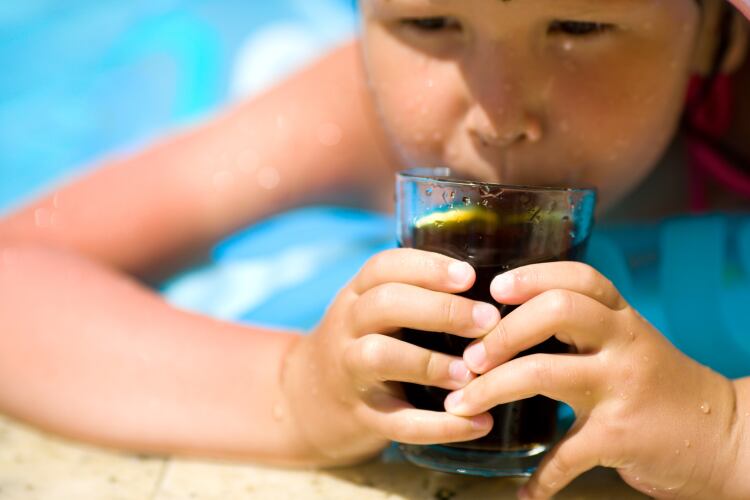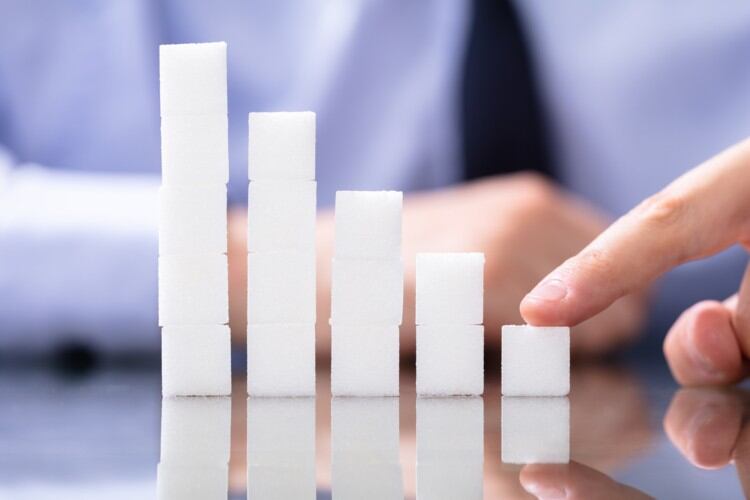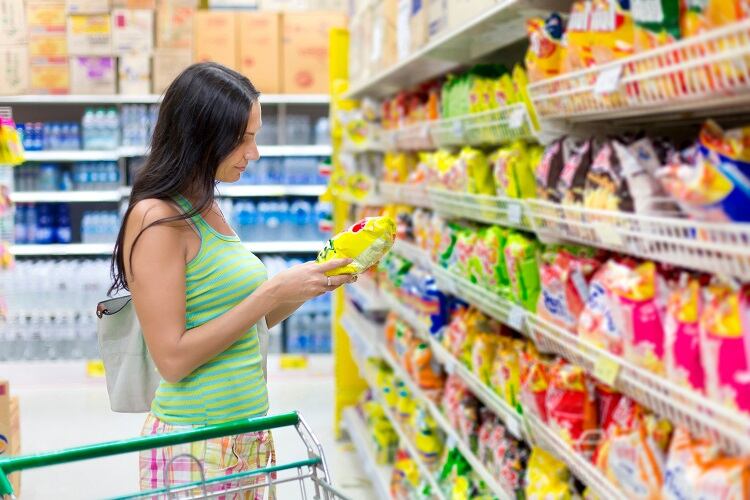PepsiCo Europe has unveiled what it describes as an ‘ambitious new plan’ to ‘add more choice’ to its food and beverage portfolio across the EU, including a series of commitments to reduce the sugar contained in its beverage portfolio and increase the availability of healthy snacking options.
The proposals were submitted to the European Commission as part of its Code of Conduct for Responsible Business and Marketing Practices. This initiative was launched under the EC’s Farm to Fork Strategy, with the aim of establishing ‘voluntary commitments’ that galvanise food makers to ‘tangibly improve and communicate their sustainability progress’.
“The Code will include tangible and measurable actions, which actually contribute to a food environment that makes healthy and sustainable food choices easier,” the EC explained.
So, what has PepsiCo signed up for?
Sugar reduction in soft drinks
PepsiCo said it will cut the average level of added sugars across its entire soft drinks range – including brands like Pepsi-Cola, Lipton Ice Tea and 7UP – by 25% by 2025 from a 2019 baseline. The company aims to achieve a 50% sugar reduction by 2030.
Garrett Quigley, General Manager and Senior Vice President, Categories, Western Europe, is confident of the company’s ability to deliver its sugar reduction aims, insisting that a reformulation ceiling has not been reached for PepsiCo’s soft drink brands. He pointed to the success PepsiCo has seen in shifting its UK portfolio to zero sugar options after the introduction of the sugar tax in the country, suggesting that similar results can be achieved in other European markets.
“You can take 100% of added sugar out and we’ve done that successfully with Pepsi MAX and 7UP Free. Across Europe there is opportunity to expand on that success, for example in the UK, 80% plus of the beverages we sell are sugar free. Why can’t that be the case more broadly across Europe? We’ve a great tasting product and the consumer trend to sugar free continues to grow,” he told FoodNavigator.
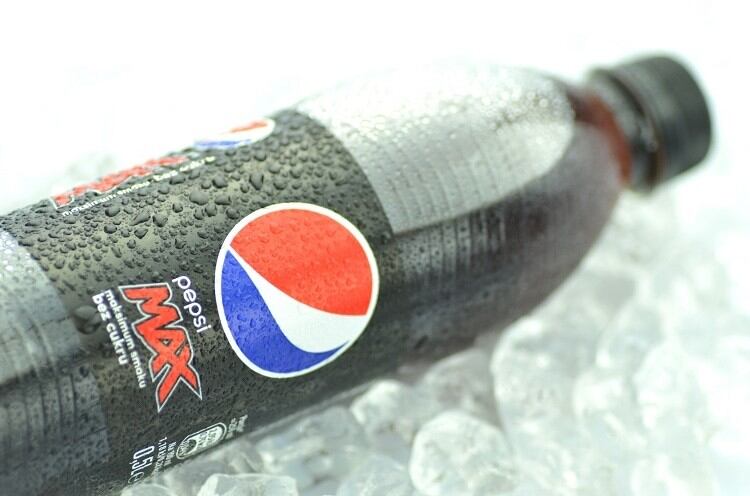
While zero sugar is a technical possibility, he does still see a place for soft drinks that contain sugar in PepsiCo’s European portfolio. “Some consumers will always want some sugar and there is opportunity to reformulate around our regular products. For beverages, low calorie sweeteners will enable sugar reduction and we have a full toolkit of options to help fuel those efforts.”
This means that removing higher sugar SKUs from shelves in Europe ‘isn’t part of the plan’. “Consumers are looking for choice and so we will still offer both regular and sugar free variants, while continuing our efforts to nudge consumers to brands such as Pepsi MAX and 7Up Free.”
While not called out in PepsiCo’s responsible business pledge, Quigley revealed that PepsiCo’s innovation efforts in beverage go beyond reformulation to take out the nasties. The company is also looking at how it can build a positive nutrition profile into its soft drink portfolio. “We are constantly innovating to build our beverage portfolio. For example, our Lipton Ice Tea is already low sugar and we are tapping into this existing health trend to expand further with new options such as green tea.”
Growing healthy snack sales ahead of the market
PepsiCo Europe said it will also diversify its snack portfolio to include healthier options, learning from its success growing sugar-free beverages by broadening their appeal.
“We have the know-how from no sugar on how to do that. This started originally in the UK when we made a bold decision back in 2006 to only advertise no sugar cola. All our advertising money since then has gone on Pepsi Max. Over the recent years, the addition of flavours like cherry and raspberry have broadened the appeal to consumers who wouldn’t normally choose a no sugar beverage,” Quigley explained.
Nevertheless, he conceded, ‘snacks are a bigger challenge’. Innovation will be crucial to producing healthy snack brands that can compete with the organoleptic profile that consumers associate with regular potato chips, for instance.
“We are finding ways to make healthier snacks taste as good as the regular products. Taste is a key driver for consumers and we have already developed some healthier brands which we plan to accelerate,” the category lead said.
“With PopWorks, we plan to tap into the growing trend of popped corn with a product which is never fried during manufacturing and Lay’s Oven Baked, while established in some key markets, certainly has more expansion potential. These products, along with other emerging brands, such as Off The Eaten Path, all deliver on taste as well as being better for you.”
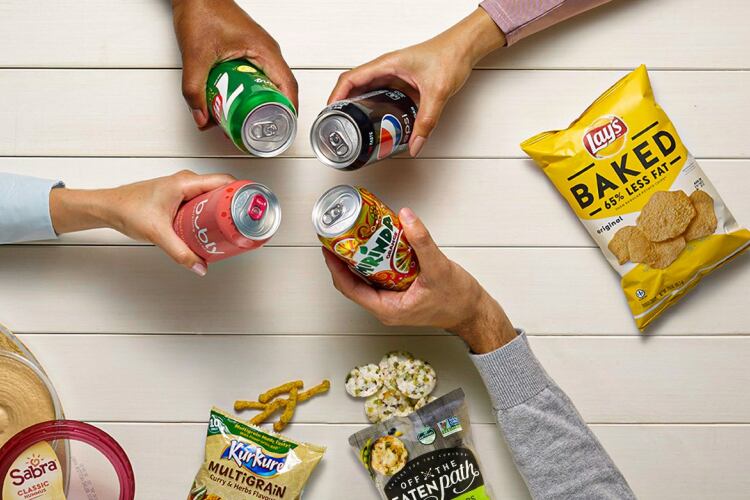
As part of its responsible business commitment, PepsiCo said it aims to increase sales of snacks rated A or B by the Nutri-Score nutrition labelling system by ‘more than 10 times’ by 2025. We were told this goal relates to total revenue – not the number of SKUs.
If this is achieved, it will make healthier snacks the company’s fastest growing food category over the next four years, with an ambition to expand this to a $1 billion portfolio by 2030.
Sales success will depend on consumer uptake. While demand for better-for-you options is growing – with Research and Markets forecasting 4.63% CAGR through to 2025 – PepsiCo is targeting healthy snack sales growth at more than double the expected market rate.
Quigley remains bullish: “I don’t think the transition to healthier snacks should be underestimated, it has certainly been a growing trend over the last decade and one we see continuing. The key is to get a product that consumers would choose because it tastes great, while also being healthier.
“We have a good foundation to build from on snacks through brands such as Lay’s Oven Baked and PopWorks. They deliver on both the healthier trend as well as the key attribute of great taste that consumers look for. We will also be applying learnings from beverages and the sales and marketing resources we have as PepsiCo to nudge consumers towards healthier choices.”
Restricting marketing and ‘push’ initiatives
One of the principle learnings from PepsiCo’s experience in sugar-free drinks is the importance of behavioural nudges, the executive continued.
“Through Pepsi MAX, we’ve developed a playbook which we’ll be bringing to our snacks portfolio. Critical to this will be the concept of nudging, made famous by Harvard professor, Cass Sunstein. We know that some consumers don’t feel comfortable moving away from products that they like. We found we could help change this by simple things and ‘nudges’ like signposting. For example, someone might go into a restaurant and ask for a Pepsi and the server suggests a Pepsi MAX instead because it’s included in a deal or on offer. We put in place a number of ‘push’ based initiatives to drive Pepsi MAX.
“As long as we can persuade the consumer that we have a product that tastes just as good as regular, we can then make it available in all the right places so that it becomes easy for it to be purchased.”
While PepsiCo plans to encourage healthier choices through push initiatives, on the one hand, the company has also signed up to a voluntary agreement to tighten restrictions on marketing unhealthy products to European children, on the other.
The company has aligned its marketing policies to commitments from the European soft drinks industry association, UNESDA, and the World Federation of Advertisers around no marketing or advertising to children under 13.
“Since 2006, PepsiCo has not advertised its soft drinks to under 12s across Europe and it has applied science-based nutrition criteria to determine which food products it can advertise to under 12s.”

These marketing commitments apply across European Member States. In the neighbouring UK market – which recently exited the EU – policymakers unveiled plans for tougher marketing restrictions still last week with the aim of reducing children’s exposure to advertising of HFSS products. The country is imposing a full ban on HFSS products advertised on TV before a 9pm watershed and a ban on paid-for advertising online.
Currently, the EC’s process is voluntary, although the Commission did note it will ‘consider legislative measures if progress is insufficient’. Would PepsiCo support a tougher regulatory stance?
Quigley responded: “We are in favour of smart legislation that works, is fair and proportionate and helps to create an environment to encourage consumers to make healthier choices. With a range of sugar-free drinks and healthier snacks, which we hope to expand, we are well positioned as trends towards more nutritious choices continue.”

